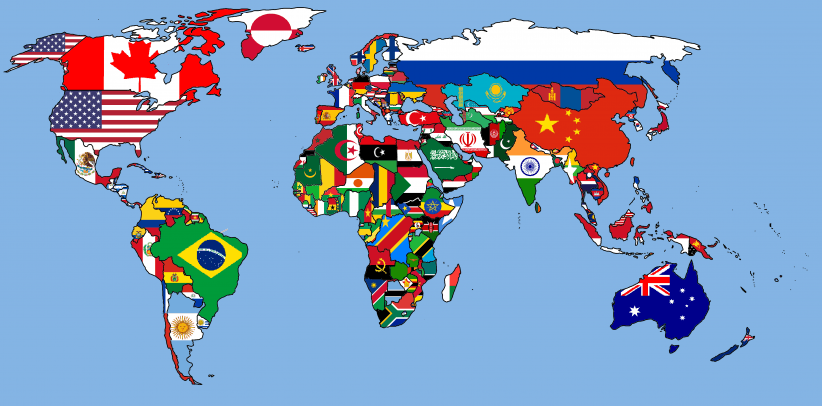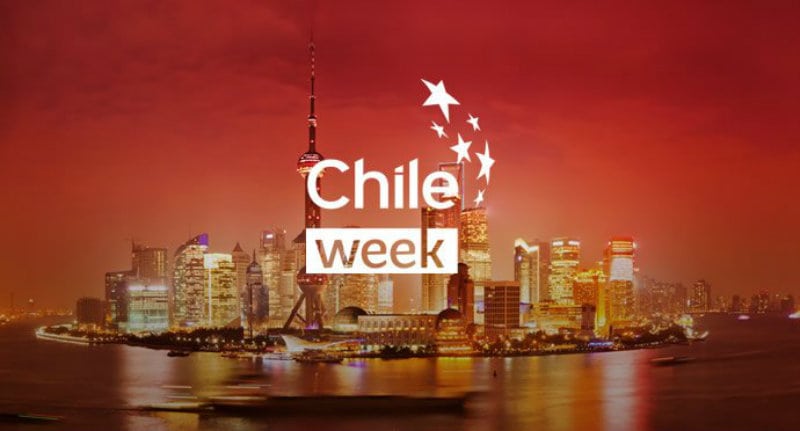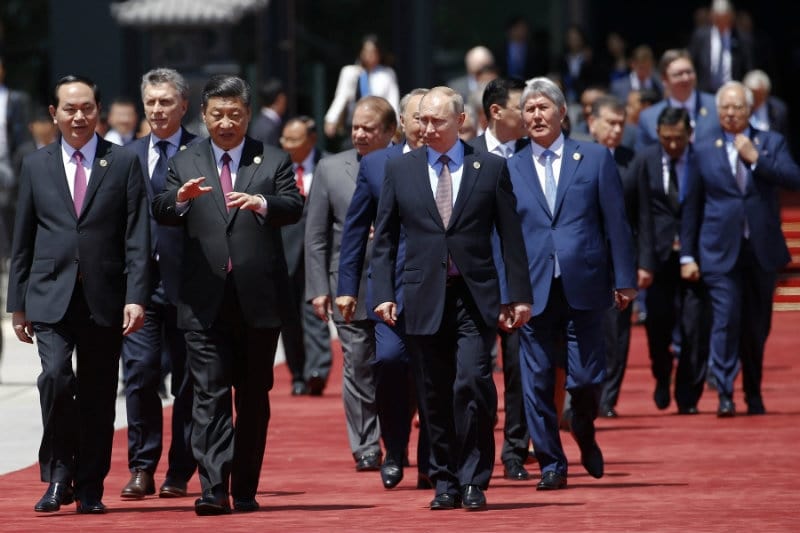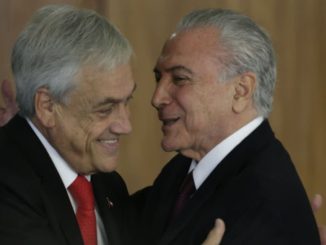
In March the High-level Dialogue on Integration Initiatives in the Asia-Pacific took place in Viña del Mar. Throughout, the spectre of Trump the enemy of free trade, made the rounds. Paradoxically, all parties committed to a trade approach that contributed to bringing Mr. Trump to power, Brexit about, and neo-fascist right-wing populism into the mainstream. For Chile holding on to the corpse of the TPP, a prime example of a “conspiracy against the public” Adam Smith already warned about, seems crazy.
Over-protected bureaucrats like Paulina Naval, head of the Directorate for Economic International Relations (DIRECON), prescribe as remedy for the social costs of economic globalisation easier small-business creation. This would leave the losers of global competition to confront even fiercer competition on their own, but it also would enable decision-makers to evade accountability.
Most small-business owners then had to compete in Chile’s bogus free-market economy (the economist Fernando Leiva Letelier calculated that in 2013 twenty conglomerates controlled 53% of GDP), fighting to land contracts with the Paulmanns, Angelinis, Mattes, and/or Luksics, who’ll save social security and administrative costs. Their conglomerates, on the other hand, win big from free trade as they can count on DIRECON, because according to the directorate foreign trade carries a positive image of Chile’s economy into the world.
Therefore, Chile’s moneyed class, in Leiva Letelier’s words, could launch “an intensive effort to internationalise operations.” This take-off was pushed by oligarchs doing statecraft and intensified under Chile’s Faustian post-dictatorship democracy, as politicians promised to keep neoliberal capitalism and oligarchs somewhat agreed to the post-1989 regime.
The country’s richest man, Andrónico Luksic, most successfully aligned policy-making with special interests. In 2014, he initiated a propaganda campaign to distract from his Antofagasta Minerals or Banco de Chile, whose business models involve depleting water resources or driving citizens into debt. On his initiative, intellectuals worked out 95 proposals, which mostly have served as the current government’s programme, and many of which — sometimes implicitly — call for greater international engagement for economic sake.
Meanwhile, Mr. Luksic, the not so ordinary citizen, grows bolder and openly lectures Bolivia on Twitter. This smart-ass attitude potentially strengthens the Morales administration’s strategy of aggressive diversion to present Chile — not without merit — as imperialist, dominated by unelected billionaires. Mr. Luksic and foreign-policy makers might be delusional about it, but a prominent super-rich lashing out against another country hurts Chile’s national interest.
Oligarchic influence runs deeper yet. The former entrepreneur-president Sebastián Piñera entrenched in 2012 their power in ENSYD, Chile’s defence strategy until 2024. ENSYD promotes pursuing national interests via international cooperation, and Mr. Piñera allowed to include a mechanism that enables special interests to execute such prerogative of the state through a public-private working group. In it public servants and entrepreneurs “debate…solution[s] to specific security problems,” allowing private power to shape decisions around military deployment or alliance building. Worse, if the group still operates (no reports have emerged), it does so removed from scrutiny, making it impossible for the public to know who acts in its interest. The Piñera administration slyly circumvented public participation by creating an extra body of consultative character for members of civil society. Therefore, civil society is supposed to provide ideas for the ‘public’-private group to either consider or dismiss.
In such a constellation diplomatic and academic expertise is pitched against private interest, but the silence from learned experts indicates that they are happier cheering a special interest government than speaking truth to power. Strategic blunders like the Falklands policy result, and one right, like the withdrawal of the ambassador to Venezuela, doesn’t correct a thousand wrongs.
To be fair, the focus on trade is understandable. Ex-President Lagos, whatever his faults, brilliantly managed US threats before the Iraq war, while the UK was plotting from the shadows. Mr. Lagos deftly wielded the political power of trade deals, because he understood that the trade agreement with the EU would cushion a fallout with Washington. With a less skilled leader, Chile would have paid dearly for the US elite’s megalomania. Given that experience, the current push into the global economy seems reckless, as leaders clearly know about the potential political implications of deals — and still, they allow Chile sleepwalking into a genocide in Myanmar.
Ex-President Eduardo Frei, personifying Chile’s trade interests in the Asia-Pacific, is enthusiastically paving the way for Chilean capital into Myanmar, although he certainly knows that there ‘A Genocide [is] in the Making.’ The minority Rohingya are exterminated by the army, with silent approval of democratically elected President Aung San Suu Kyi and the majority of the country’s inhabitants. The Rohingya are disparaged in the media and victims to systematic rape and killing. A trade deal wouldn’t only funnel more resources into the genocide, it would also create a screen to cover up the corpses.
Neither Chile’s entrepreneurial class nor their political enablers tackle the strategic, political, and philosophical questions economic globalisation raises, because oligarchic influence frames international relations to serve profit-making. Until it makes boom.
— The views expressed by this writer and commenters below do not necessarily reflect the views and policies of the Santiago Times.



